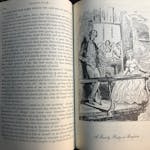Russia's barbarous invasion of Ukraine a year ago, and the United States' steadfast support for the embattled former Soviet satellite, has raised the specter of nuclear conflict for the first time in decades. So it's an opportune time to review what happened 60 years ago when the Soviet decision to place nuclear missiles in Cuba sparked a facedown with the United States that brought the world to the edge of disaster.
In "The Abyss," Max Hastings, a British journalist and military historian, offers a compelling narrative of the crisis as seen through the eyes of the major players: a fanatical Fidel Castro, eager to respond to American aggression with a nuclear strike; a chastened Nikita Khrushchev, belatedly recognizing he had underestimated American resolve; and a preternaturally astute John F. Kennedy, who over and over again withstands enormous pressure from military aides telling him that an air strike against the missiles — which surely would have drawn retaliation — was the only path to take.
For Kennedy, Hastings writes, the crisis was more political than strategic; missiles in Cuba threatened the United States no more than Soviet ballistic missile submarines already did. But Khrushchev didn't have to worry about public opinion in his country; JFK did, and according to Hastings "his instinct towards moderation and compromise ... stood at odds with the conservative worldview of a substantial proportion of his fellow countrymen, who demanded that America should be seen as strong."
In the end, Hastings credits both men for forging a peaceful end to the confrontation, who in contrast with Castro and their own military advisers "were prudently haunted by consequences." Our best chance of survival today, the author states, rests with national leaders who like Kennedy and Khrushchev are willing to indulge "in the fear which must lie at the heart of wisdom."
Kevin Duchschere is a Star Tribune editor.
The Abyss: Nuclear Crisis Cuba 1962
By: Max Hastings.
Publisher: Harper, 538 pages, $35.



